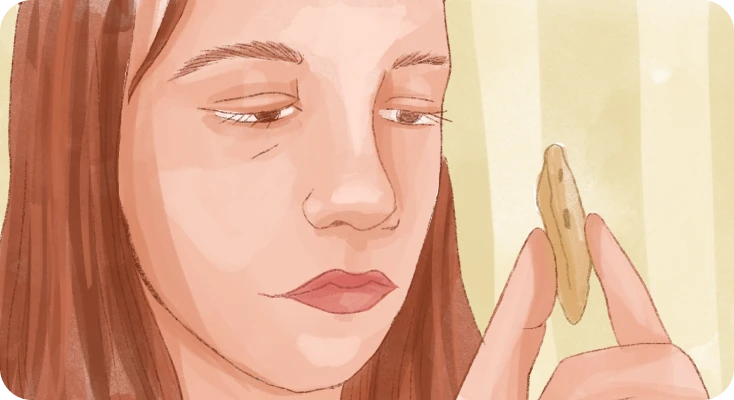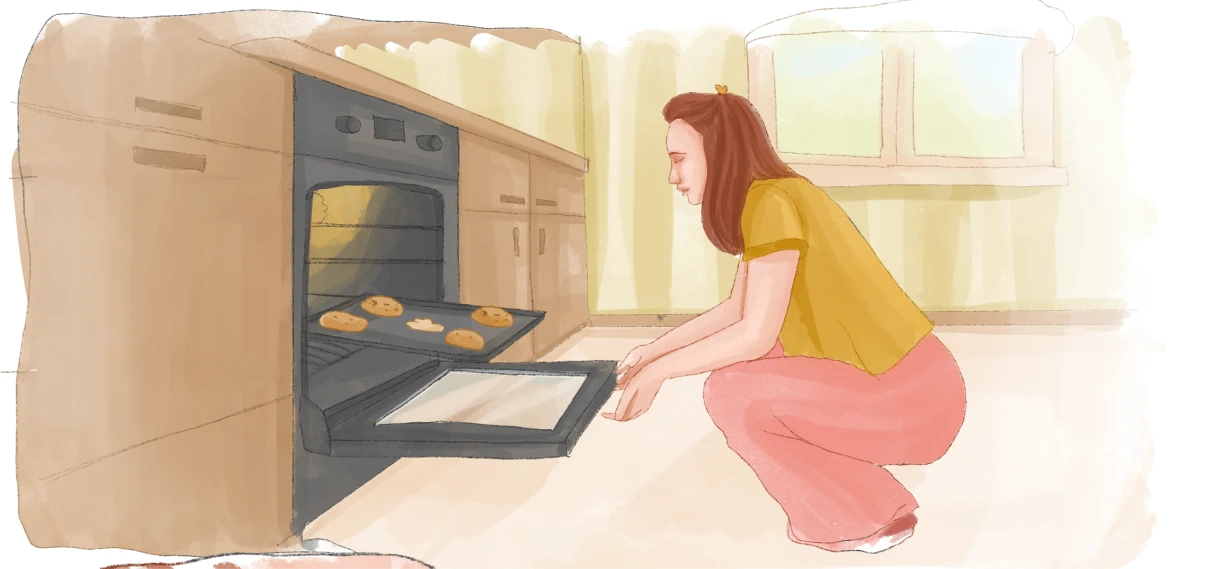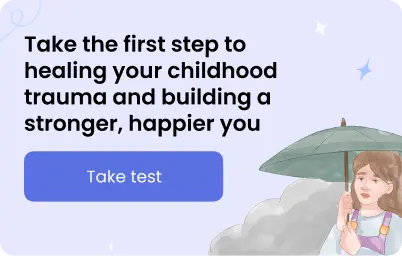Do you often have thoughts like “I’m not as good as others” or “Why do I feel worthless?” Certainly, feeling worthless can be a painful and isolating experience. It can come from various sources, such as past experiences, mental illness, low self-esteem, negative core beliefs, or external negative events.
Still, understanding the root cause of the feeling of worthlessness and learning ways to cope with it can help you regain a sense of self-worth and well-being.
Why Do I Feel Worthless? Causes of Worthlessness
Feeling worthless is often the result of a combination of the following factors:
1. Loss or grief
Experiencing a significant loss—whether it’s the death of a loved one, the end of a relationship, or feeling lost in life—can become the reason for negative feelings.
Moreover, experiencing infidelity in a relationship can also affect your sense of self-worth and provoke negative self-talk. Eventually, these difficult feelings may leave you questioning many aspects of your identity.
If your partner has cheated on you, it can feel like a profound loss. Not just of the relationship itself, but also of the trust, security, and emotional investment you’ve put into that relationship. As a result, the emotional fallout can make you feel shame and self-doubt, and wonder how to stop overthinking after being cheated on.
2. Childhood trauma
Negative effects of childhood neglect or emotional abuse can deeply impact how you perceive yourself. Generally, if you grew up being the black sheep of the family or feeling unloved, unseen, or unimportant, it can affect your self-esteem in adulthood. Over time, you may think, “My parents treated me badly, so I must deserve it,” or “Why does nobody like me?”
Explore more about how past trauma and stressful events can affect your self-worth and confidence. Take a test to understand the connection and find helpful steps toward recovery.
3. Chronic stress or burnout
Overworking and chronic stress can contribute to emotional exhaustion [4]. Constant overwhelm with everyday tasks, juggling multiple responsibilities, feeling like a failure, and not making progress can be strongly linked with negative thoughts and feelings.
4. Mental health conditions
Mental health conditions like depression or anxiety can involve feelings of worthlessness [1], [2]. Low energy, hopelessness, and negative self-talk can make you feel like you don’t have value or that you’ll never feel motivated.
Rychel Johnson, a licensed clinical professional counselor, explained how a person who struggles with feeling worthless can understand that they need the help of a therapist.
If these feelings of worthlessness are persistent or interfere with daily life, it may be a sign that professional support is needed. A therapist can offer a safe space to explore these emotions and help identify their origins. Therapy can provide strategies to challenge negative self-perceptions and build healthier thought patterns. Seeking help is not a reflection of weakness or failure — it’s a step toward self-care and healing. Recognizing that you deserve to feel better, even if it’s hard to believe now, is the first step toward finding relief and rediscovering your worth.
What To Do with Feelings of Worthlessness
Typically, feeling of worthlessness is not a reflection of reality but rather an emotional state influenced by multiple factors. Here are some strategies that may help:
1. Challenge negative thoughts
Identify and question negative thoughts like “I am worthless” to reshape your mindset and build a healthier self-perception.
Here’s a step-by-step guide:
1. Identify the negative thought
Pay attention to the specific thoughts that arise when you are feeling worthless. These might sound like:
- “Why would anyone want to be around me?”
- “I don’t deserve happiness.”
- “I’m invisible, and I hate myself.”
Write these thoughts down. Seeing them on paper can reveal how exaggerated or untrue they are.
2. Question the evidence
Ask yourself:
- What evidence do I have that this thought is true?
- What evidence do I have that it’s not true?
For example, you may think, “I can never do anything right. I always mess things up.”
- Evidence for: “I made a mistake on my work project last week.”
- Evidence against: “I successfully completed several projects before. My manager also praised me for my efforts recently.”
3. Reframe the thought
Once you’ve identified that a thought is unhelpful, replace it with a more balanced and constructive one. Thus, you can change “I am not good enough to achieve my goals” to “I may face challenges, but I am learning and improving every day. Progress takes time.”
4. Use neutral or positive self-talk
To stop feeling worthless, try to avoid absolute or harsh words like “always,” “never,” or “worthless.” Replace these with softer, more realistic language.
5. Perspective shift
Ask yourself:
- How would I respond if a friend shared this thought?
- Would I judge them as harshly as I’m judging myself?
Here’s an illustration. If you think, “Nobody cares about me,” try to shift the perspective to: “If a friend felt this way, I would remind them of the times I was there for them and encourage them to reach out for support. Maybe I need to do the same for myself when I’m feeling worthless.”

2. Set achievable goals
Achieving even small, manageable goals can help you regain a sense of control over your life, overcome low self-esteem, and decrease your mental health concerns:
1. Start small and be specific
Big goals can be overwhelming, so break them down into actionable steps. Instead of: “I want to be healthier,” you may try “I will go for a 15-minute walk three times this week.”
2. Be flexible and adjust when needed
Don’t feel bad about adjusting your goals to fit your current circumstances. This doesn’t mean you’ve failed—it shows you’re adaptable. For instance, if your initial goal was to exercise five days a week and it feels too much, adjust it to three days and build up gradually.
3. Keep a goal journal or tracker
Track your progress to visualize your achievements and change negative thinking patterns. Seeing evidence of your efforts can boost your motivation and remind you how far you’ve come. Use a notebook or app to track completed tasks, like the number of pages you’ve read, miles you’ve walked, or tasks you’ve accomplished at work.
4. Set long-term and short-term goals
Balance immediate, short-term goals with bigger, long-term ones. Short-term goals provide quick rewards, while long-term goals give you something meaningful to move toward. For instance, “Learn 10 new words in Spanish this week” is a short-term goal, while a long-term one is “Hold a basic conversation in Spanish by the end of six months.”
3. Find support in relationships
Here’s how you can create meaningful and supportive connections in your life:
1. Be open and vulnerable
Sharing when you’re feeling worthless allows others to understand you better and offer support. Thus, instead of automatically replying, “I’m fine,” when you’re struggling, try saying the truth, “I’ve been feeling shame and self-doubt lately. Could you just talk to me about it?”
Want to understand better how you relate to others emotionally? Take the emotional intelligence test and get insights into your strengths and weaknesses.
2. Express mutual care
Show empathy, listen actively, speak kindly, and be there for others during their times of need. If a friend tells you about a difficult situation, respond with kindness and understanding, such as, “I’m here for you. How can I help?”
3. Set boundaries
It’s important to limit interactions with people who constantly criticize, belittle, or manipulate you. If you’re feeling worthless in a relationship, it may be a symptom that you need to set a boundary for a greater sense of self-worth.
4. Invest time and effort
You may schedule regular coffee dates with a friend or send a thoughtful message to let a person know you’re thinking of them.
5. Be patient with new relationships
It takes time to develop intimacy and trust. Focus on building mutual respect and understanding. Before getting into deeper topics, start with light, enjoyable activities like walking or having casual conversations with the person.
4. Limit comparisons
Constantly comparing yourself to others can provoke feelings of worthlessness, research suggests [5]. Here’s how to limit comparisons and focus on your own life:
1. Recognize the trap of comparison
Comparing your everyday life to someone else’s highlights is neither fair nor realistic. For instance, you might see a friend’s vacation photos and feel envious, but you don’t see the hard work, sacrifices, or challenges the person faced to afford that trip. Reduce time spent on social media, as it is a significant source of comparison [6]. Unfollow accounts that have a bad effect on your sense of value and self-worth.
Have you ever compared yourself unfavorably to other people?
2. Focus on your own progress
Try to compare your current self to your past self to reconnect with your self-worth. Instead of thinking, “I’m not as fit as my coworker. I feel worthless,” reflect on how you have improved your results over time. As an illustration, you may think, “Last month, I could only run half a mile, and now I can run a full mile.”
3. Remember the context
Everyone’s circumstances are different. What works for someone else might not work for youб and that’s okay. For example, if a friend starts a business and finds success quickly, remember that they may have had prior experience, support systems, or resources you don’t have yet.
5. Seek professional help
If feelings of worthlessness persist, consider getting professional support. Talking to mental health professionals or joining a support group can help identify deeper causes for your negative feelings and guide you through healing.
Breeze also asked Rychel Johnson, M.S., LCPC, how therapy can help overcome the feeling of being worthless.
Therapy can help overcome feelings of worthlessness by providing a supportive environment to explore these emotions without judgment. A therapist helps identify the underlying causes of these feelings, such as past experiences, thought patterns, or unrealistic expectations. Through techniques like cognitive-behavioral therapy (CBT), you can learn to recognize and challenge distorted beliefs that contribute to self-criticism. Therapy also equips people with healthier coping strategies and fosters self-compassion, helping them build a more balanced and accurate view of themselves.
“What Therapy, Tools, and Discipline Taught Me About Self-Love”
One of the active Breeze users talked about the period in their life when they’ve been experiencing feelings of low self-worth.
“I used to wake up every morning feeling like I had a burden on my chest. Since it wasn’t sadness in the conventional sense, I was unable to explain it to anyone. It was emptiness. I felt like I was not enough, no matter what I did. Not smart enough, not successful enough, not likable enough. I continued to work, pretend, and smile, but deep down, I felt like a worthless person, and I had failed at life.
Over time, my anxiety and apathy grew. What’s worse, I started to experience suicidal thoughts. That was when I realized I couldn’t fake it anymore. So, I decided to start therapy, and it turned out to be one of the best decisions I’ve ever made.
“Small Steps, Big Shifts in How I Felt”
My mental health professional didn’t “fix” me. In fact, she taught me that my inner voice wasn’t cruel because I was broken, but because I had never been taught how to treat myself with compassion.
Around the same time, I started googling things like “Why do I feel empty?” and “Why am I so unmotivated?” That’s when I stumbled across the Breeze app. I didn’t expect much and just wanted something to try.
The first thing I did was take a few of their mental health tests. The results didn’t diagnose me, but they highlighted my personal issues like low self-esteem, burnout, and emotional numbness. Seeing it written out made it feel real and manageable.
Then I started journaling with the prompts in the app. At first, it felt silly — but writing about what I was grateful for, or what triggered me that day, slowly opened a window I had kept shut for years. I started noticing patterns. Learning how my thoughts shaped my mood.
On days when everything felt heavy, I used the relaxation games in the app. They are simple but comforting, and they help me reset without guilt. I realized that I wasn’t being lazy; I was learning to be kind to myself.
It didn’t change overnight. But something inside me shifted. I stopped measuring my worth by what I accomplished and compare myself with people as much as I used to. I started treating myself like I mattered, even on the days I didn’t feel like I did.
Now, when those feelings creep back, I have tools. I breathe, I write, I pause. I remind myself: I am not worthless. I never was”.
Sources
1. Harrison P, Lawrence AJ, Wang S, Liu S, Xie G, Yang X, Zahn R. “The Psychopathology of Worthlessness in Depression”. May 2022.
2. Skjerdingstad N, Johnson MS, Johnson SU, Hoffart A, Ebrahimi OV. “Feelings of worthlessness links depressive symptoms and parental stress.” July 2021.
3. Orchard F, Pass L, Reynolds S. “I Am Worthless and Kind“; the specificity of positive and negative self‐evaluation in adolescent depression. December 2018.
4. Morley D. Glicken, Bennie C. Robinson. Emotional Exhaustion. 2023
5. Myungsuh Lim. Effects of users’ envy and shame on social comparison that occurs on social network services. October 2016.
6. Himasri Kayala, Prahlad Madhu and Emilia Werkun. Social comparison in social media. August 2023.
Disclaimer
This article is for general informative and self-discovery purposes only. It should not replace expert guidance from professionals.
Any action you take in response to the information in this article, whether directly or indirectly, is solely your responsibility and is done at your own risk. Breeze content team and its mental health experts disclaim any liability, loss, or risk, personal, professional, or otherwise, which may result from the use and/or application of any content.
Always consult your doctor or other certified health practitioner with any medical questions or concerns
Breeze articles exclusively cite trusted sources, such as academic research institutions and medical associations, including research and studies from PubMed, ResearchGate, or similar databases. Examine our subject-matter editors and editorial process to see how we verify facts and maintain the accuracy, reliability, and trustworthiness of our material.
Was this article helpful?





